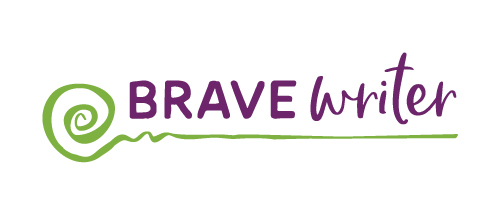Welcome to "Tea with Julie," a weekly missive by me, Julie Bogart. My wish is to give you food for thought over a cup of tea to enhance your life as an educator, parent, and awesome adult. Glad you're here. Pinkies up!
P.S. Was this email forwarded to you? Add yourself to the list and get your own!
Cincinnati, July 8, 2023
Hi Friend,
Lots of parents are intimidated by poetry. They feel inadequate (imagining that poets hide mysteries within their rhymes) to plumb the depths sufficiently for insight and meaning, thinking their kids will not “get it” either. High school poetry units often left many of us scratching our heads rather than savoring language.
In the homeschool, you get to reclaim poetry as a legitimate tool of language arts. Poetry is all about the words. The:
- choices,
- sounds,
- relationships,
- punch.
Poetry aims to get a message/story across within limits: meter, rhyme, alliteration or assonance (or both!), stanzas, numbers of words. It’s the Sudoku of language!
Here are the ways I recommend you dip your toes into the stream of poetic expression:
1. Read it.
Don’t worry about meanings, themes, alliteration, rhyme schemes, or meter. Simply let the words roll around in your mouth. Read the poem and ignore the temptation to wonder at it. Let yourself feel the words. You might only react positively to a word pair or one ending rhyme. That’s perfectly fine!
In poems that don’t offer up their meanings easily, start with reading and letting yourself connect to whatever it is that draws your attention. (If nothing does, it’s fine to move on to the next poem. No need to squeeze “blood from a turnip.” You might “get it” some other year.) Also, read it through multiple times before you render a judgment. Poems benefit from multiple readings.
2. Listen to it.
As you read it aloud (or as the poem is read to you), listen to the sounds. Ignore meanings completely. What stands out?
- Rhyme?
- Repeated vowel sounds (assonance)?
- Repeated initial consonant sounds (alliteration)?
- Repeated consonant sounds throughout the line or poem (consonance)?
How about interesting word uses (a noun acting as a verb, or a made-up word like you’ll find in Carroll or cummings)? Is there a rhythm you can anticipate? Can you beat your hand to the sounds – the accented syllables versus the ones that don’t make you slap your leg? Is there a pattern (each line starts with “I wish…” or ends with “…and so it goes”)?
3. Listen for word choices.
In addition to noting the sounds, note the word choices. Are there surprises (words used in ways you wouldn’t ordinarily think of them)? Are they plain words (nothing special except they all go together in an interesting way)? Do you find yourself thinking about the way a word is used? Does the poet focus on concrete experiences or metaphor or something else? Is it funny? Why? Puns? Irony? Punchline humor?
4. Meaning or theme?
Now we get down to the point of writing the poem. What’s it about? You can be as superficial as you want. Just get the gist. Consult your kids if you feel stuck. They are surprisingly insightful. Figure out if the poem paints a picture of an emotion or experience, or if it is detailing a story or telling an idea. Perhaps it is commenting on a theme such as patriotism or friendship or love or autumn.
5. Do you like it?
Guess what? No right answers here. If you find it inscrutable, hard to read aloud, beyond your reach intellectually, of course you won’t like it and you don’t have to. It may be that you aren’t the right audience or it could be that you haven’t yet cultivated your poetic “sensibility” enough to get this more sophisticated poem.
Remember: there are just some arenas where depth supports understanding (algebra and calculus are two of them; poetry is another). So if it so happens that you can’t appreciate some famous poem all your teachers told you was the best in its genre in 1762, that’s okay! You’re not there yet and you don’t need to be.
When you read poetry with kids, choose books that are high on rhyme, humor and concrete experiences. You’ll know they like it if they want to keep reading more from the same book. If they don’t, pack it up. Send it back to the library and go to the next book.
The goal here is enjoyment of language. So many good (subconscious) things are going on in your head and in your kids’ heads when they play with poetry. Serve tea, cookies and a big side of optimism and your poetry experiences will become the highlight of your week. Trust me. I’ve seen it happen thousands of times.
Be sure to follow along on our Instagram account where we feature your poetry teatimes!
For additional ideas about poetry teatime, you can also visit our website: Poetry Teatime.
Warmly,

P.S. Catch up on all the “Tea with Julie” emails here!
Julie Bogart
© 2023 Brave Writer LLC™
help@bravewriter.com

.